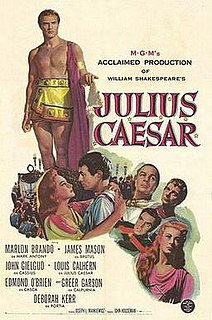 W
WGaius Julius Caesar, one of the most influential men in world history, has frequently appeared in literary and artistic works since ancient times.
 W
W100 is a Big Finish Productions audio drama based on the long-running British science fiction television series Doctor Who. It consists of four one-part stories by different authors, rather than the usual multi-part serial, all involving the number 100 in some way. All episodes feature the Sixth Doctor as played by Colin Baker and Evelyn Smythe played by Maggie Stables.
 W
WAlternate Generals (1998) is a collection of alternate history short stories edited by Harry Turtledove, Roland J. Green and Martin H. Greenberg. The novel includes 16 short stories, including Turtledove's own "The Phantom Tolbukhin".
 W
WAlternate Tyrants is a 1997 Tor alternate history anthology, edited by Mike Resnick. The anthology contains 20 short stories, with each story by a different author, and presents a scenario where an individual becomes a tyrant or dictator in a way that did not occur in real life.
 W
WGiulio Cesare was one of three Conte di Cavour-class dreadnought battleships built for the Royal Italian Navy in the 1910s. Completed in 1914, she was little used and saw no combat during the First World War. The ship supported operations during the Corfu Incident in 1923 and spent much of the rest of the decade in reserve. She was rebuilt between 1933 and 1937 with more powerful guns, additional armor and considerably more speed than before.
 W
WMS Giulio Cesare was a luxurious ocean liner built for the Italian Line. She was a sister ship to MS Augustus which was launched in the same year. She was built for the South America service like her sister. These two ships' specification and design were very similar.
 W
WSS Giulio Cesare was initially a liner of the Navigazione Generale Italiana, which was later operated by the Italian Line. The ship was used to transport first class, second class, and tourist-class passengers.
 W
WJulius Caesar is a 1953 epic Metro-Goldwyn-Mayer film adaptation of the play by Shakespeare, directed by Joseph L. Mankiewicz, who also wrote the uncredited screenplay, and produced by John Houseman. The original music score is by Miklós Rózsa. The film stars Marlon Brando as Mark Antony, James Mason as Brutus, John Gielgud as Cassius, Louis Calhern as Julius Caesar, Edmond O'Brien as Casca, Greer Garson as Calpurnia, and Deborah Kerr as Portia.
 W
WJulius Caesar is a 1970 British independent film adaptation of William Shakespeare's play of the same name, directed by Stuart Burge from a screenplay by Robert Furnival. The film stars Charlton Heston, Jason Robards, John Gielgud, Robert Vaughn, Richard Chamberlain, Diana Rigg, and Jill Bennett. It is the first film version of the play made in color.
 W
WGaius Julius Caesar, one of the most influential men in world history, has frequently appeared in literary and artistic works since ancient times.
 W
WThe Nine Worthies are nine historical, scriptural, and legendary personages who personify the ideals of chivalry established in the Middle Ages, whose lives were deemed a valuable study for aspirants to chivalric status. All were commonly referred to as 'Princes', regardless of their historical titles. In French they are called Les Neuf Preux or "Nine Valiants", giving a more specific idea of the moral virtues they exemplified: those of soldierly courage and generalship. In Italy they are i Nove Prodi.
 W
WThe Story of Caesar and Cleopatra is an amalgamation of fourteen tapestries put together by the Art Institute of Chicago from three separate tapestry series in their collection. The original tapestry series' were the Story of Caesar Augustus, the Story of Cleopatra, sometimes referred to as the Story of Cleopatra and Antony, and the Story of Zenobia and Aurelian, all designed by Justus van Egmont in the 17th century. The tapestries were made in the Flemish High Baroque style. They were produced by some of the leading weaving workshops of the time and were commercially successful.